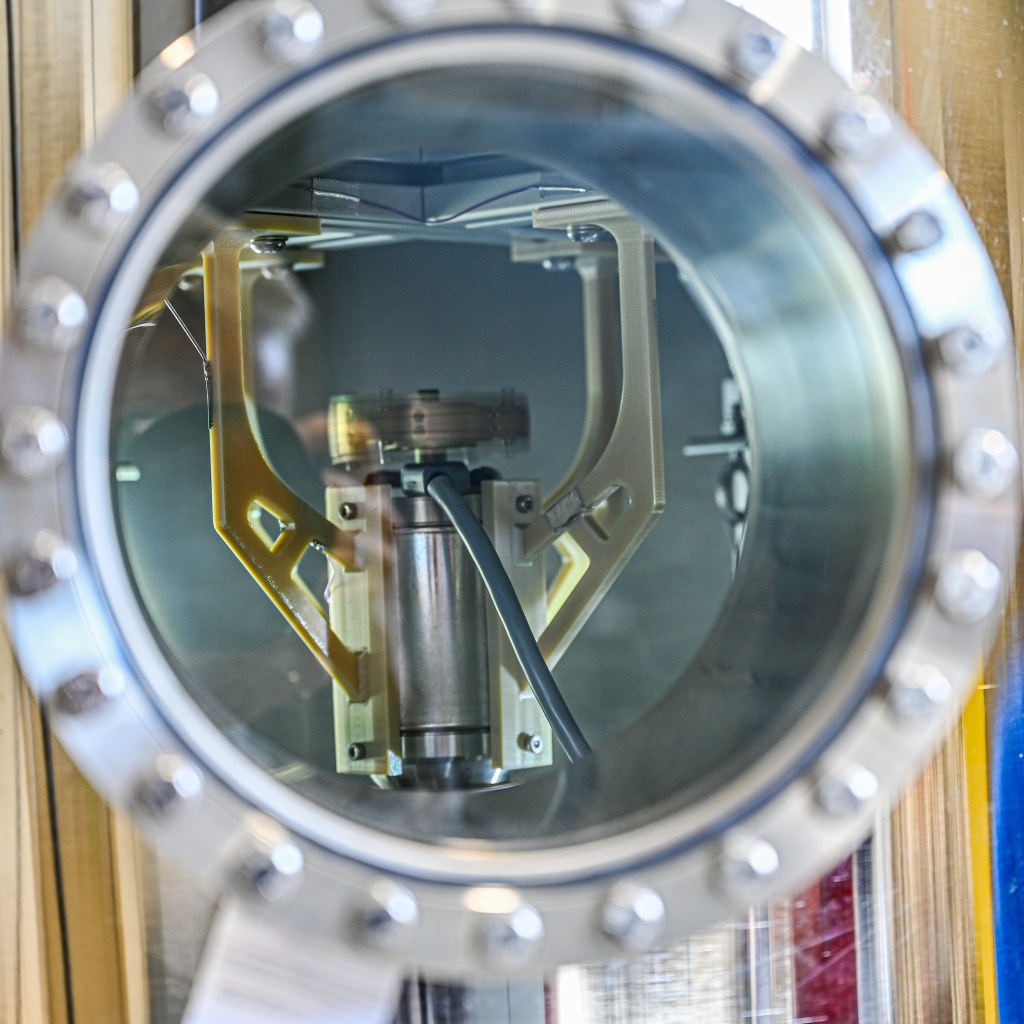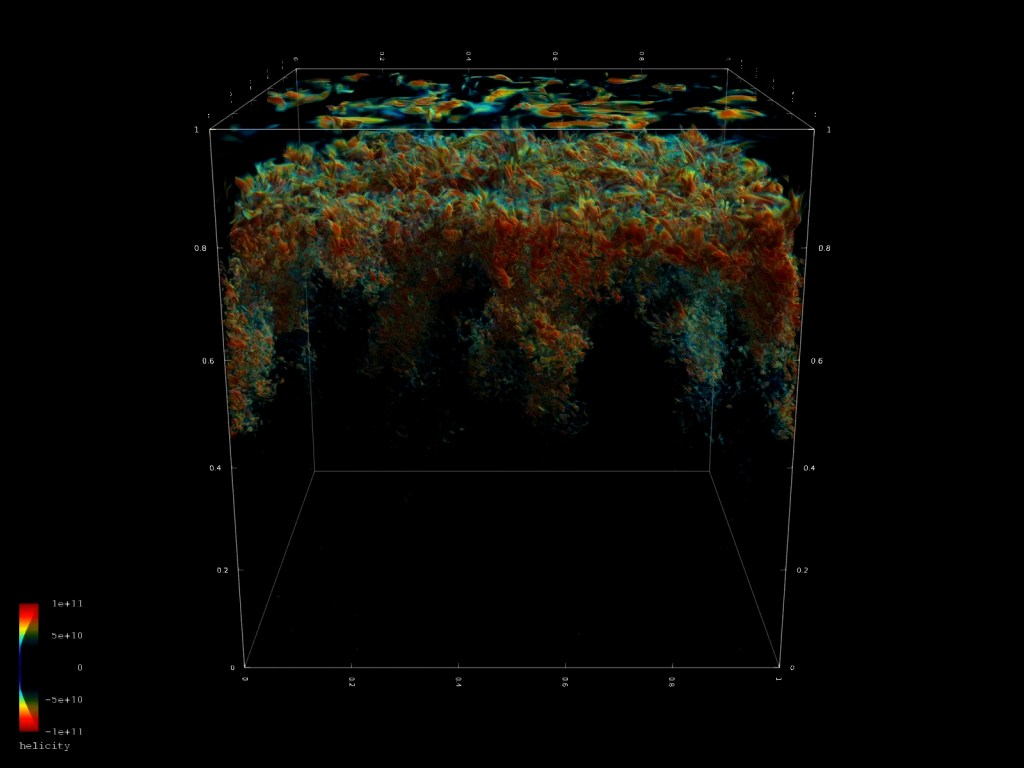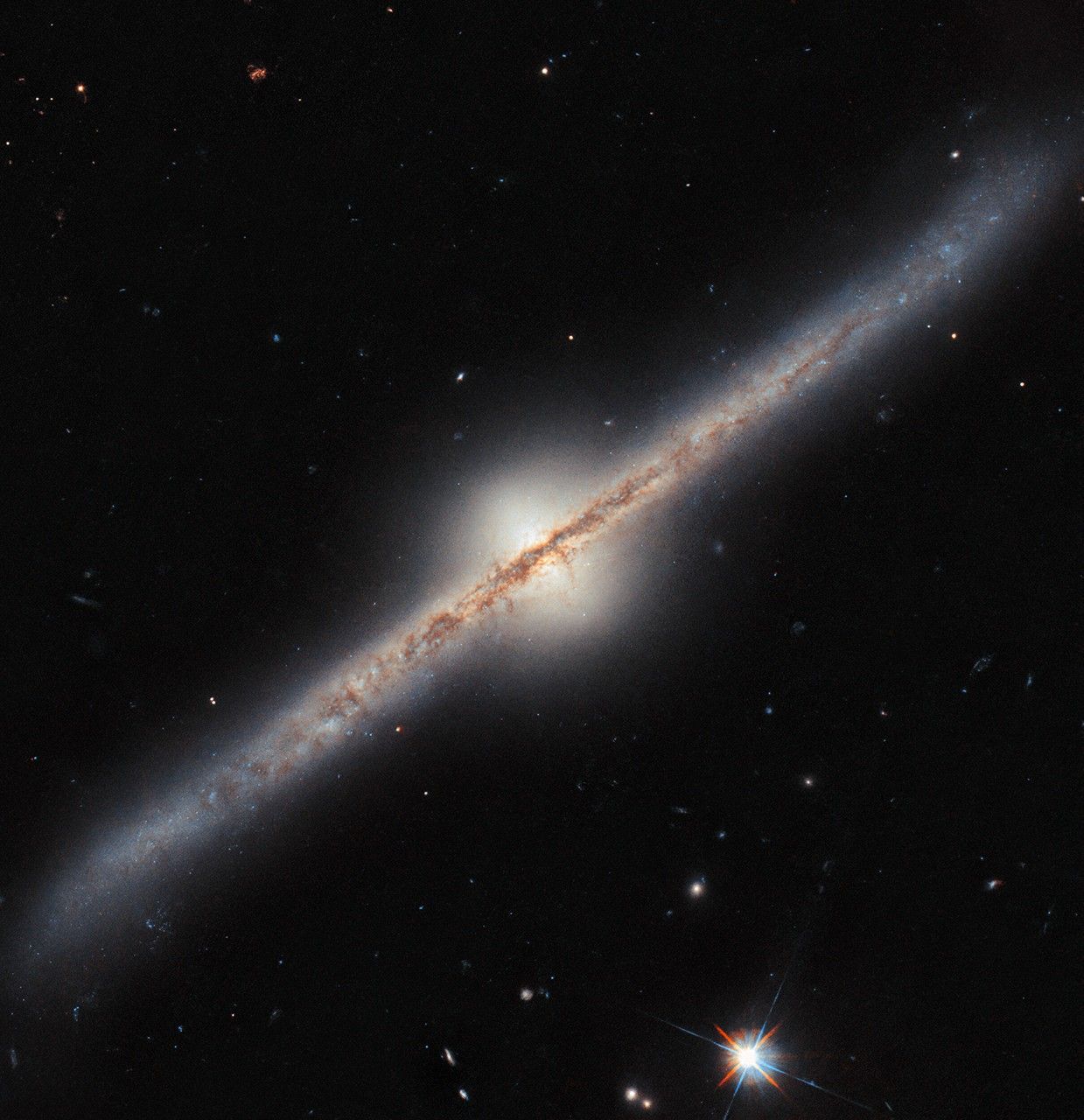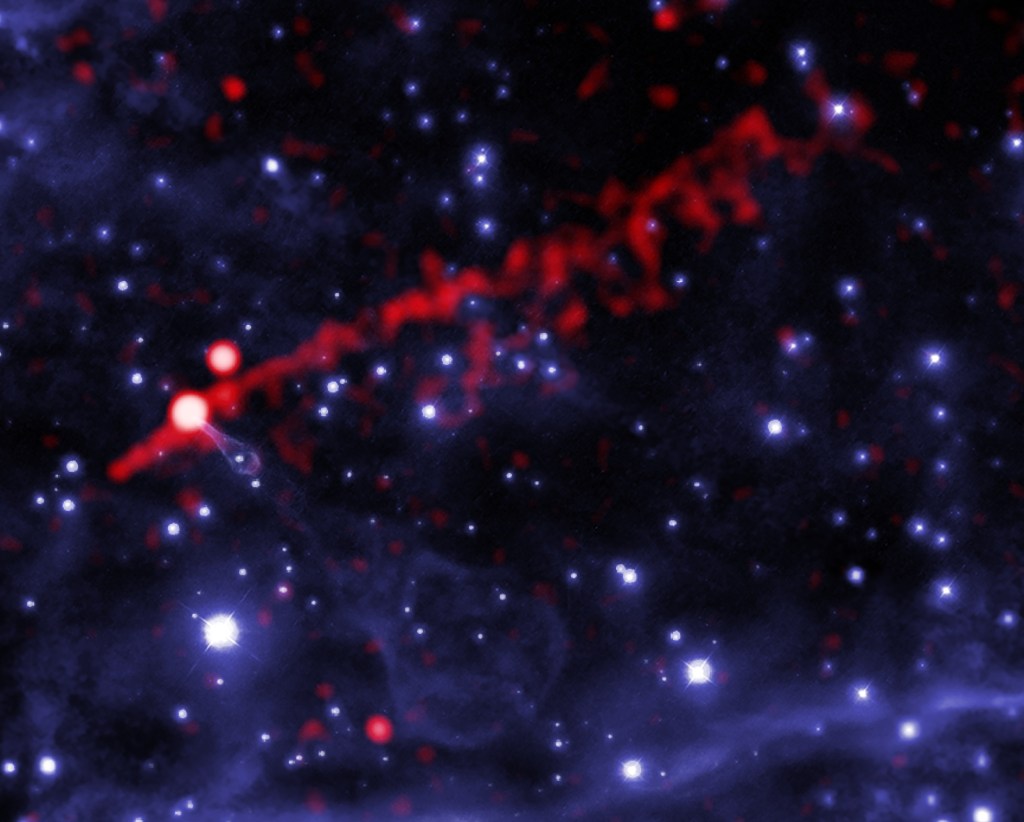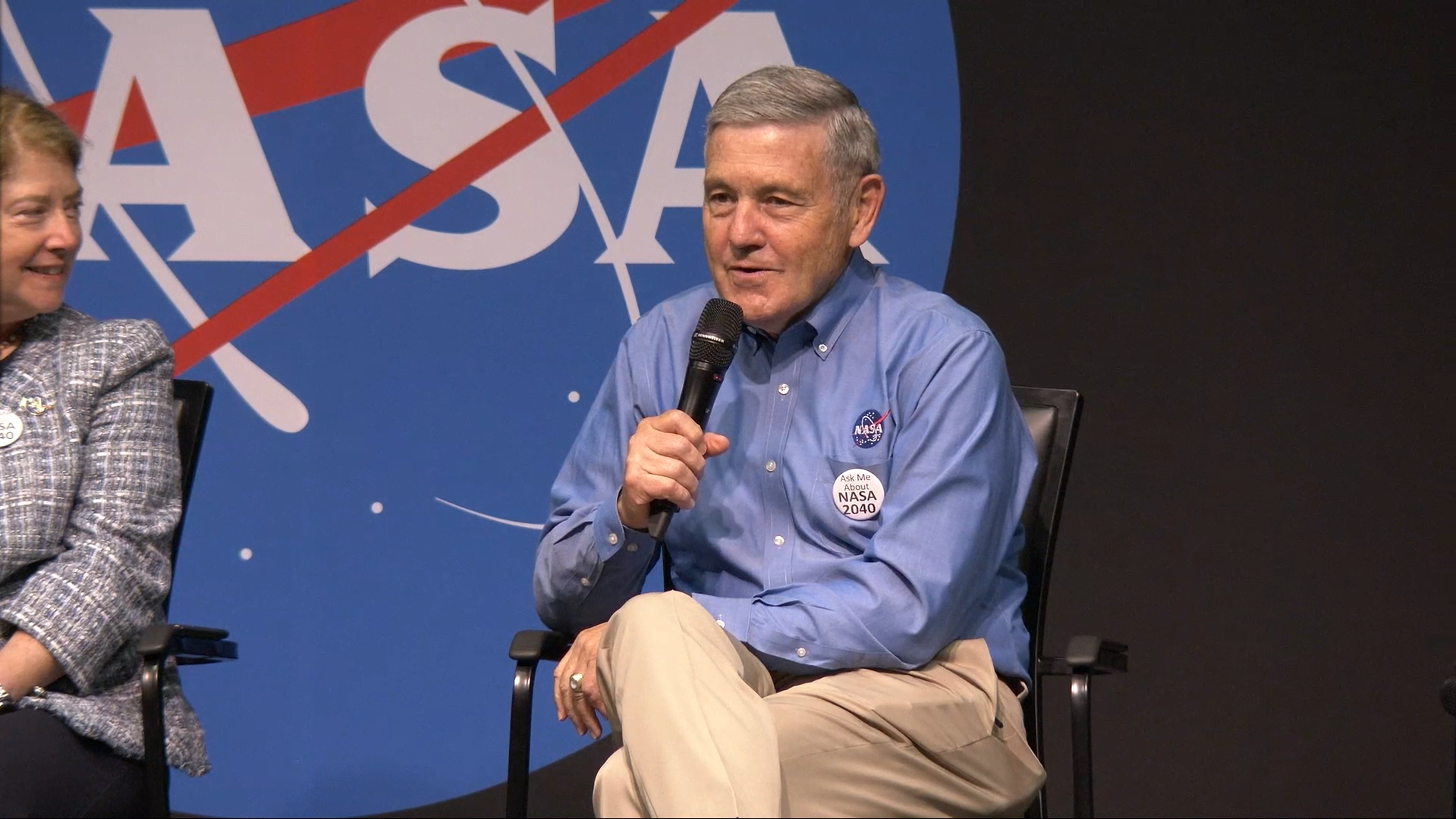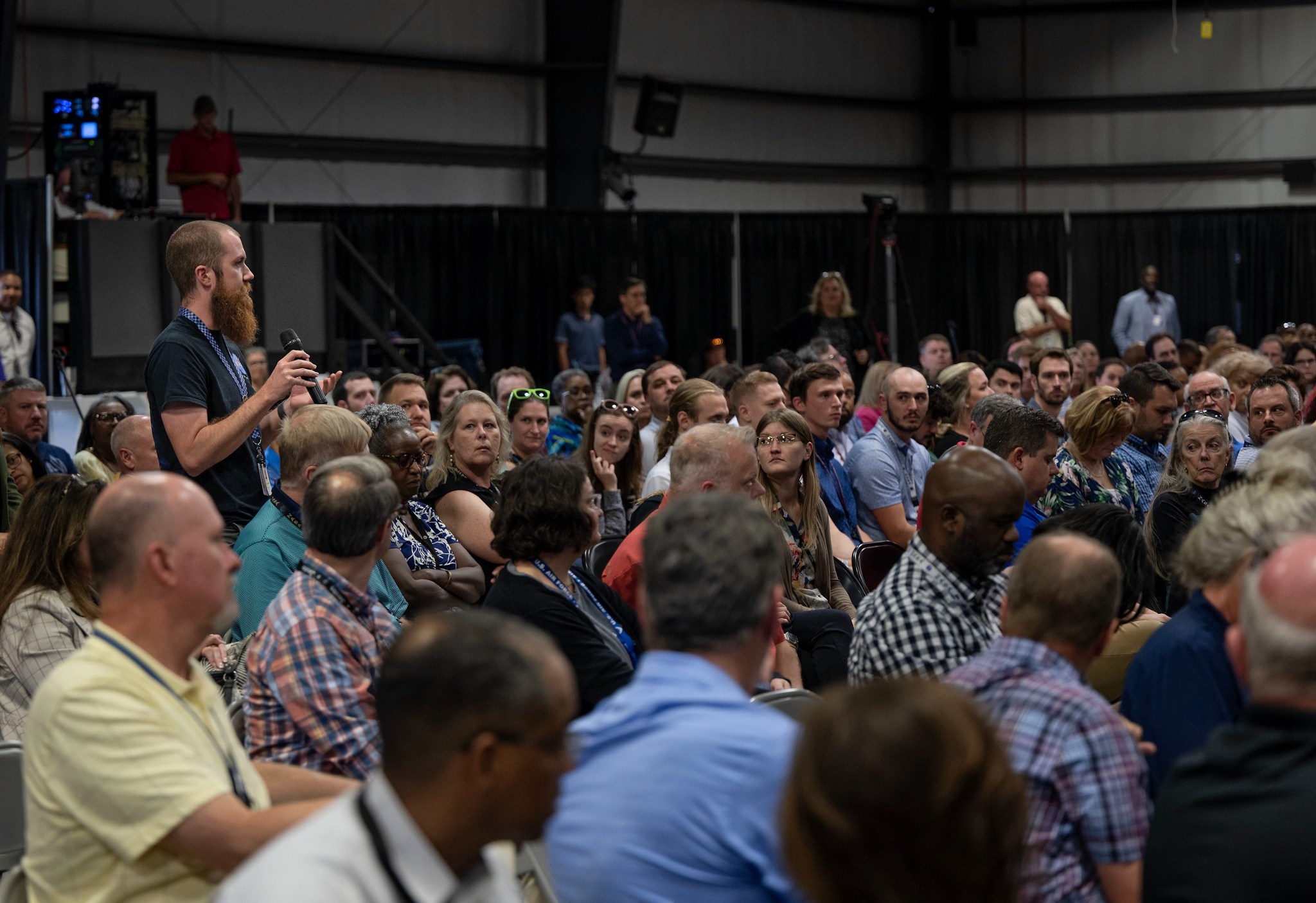By Jessica Barnett
From funding to historic achievements to the future of NASA, there was no shortage of topics for discussion during the latest Marshall Town Hall.
Marshall team members joined in person and online as Acting Marshall Center Director Joseph Pelfrey, NASA Administrator Bill Nelson, Deputy Administrator Pam Melroy, Associate Administrator Bob Cabana, and Deputy Associate Administrator Casey Swails shared their goals for Marshall and the agency’s future and answered questions from the audience in Activities Building 4316 on Sept. 18.
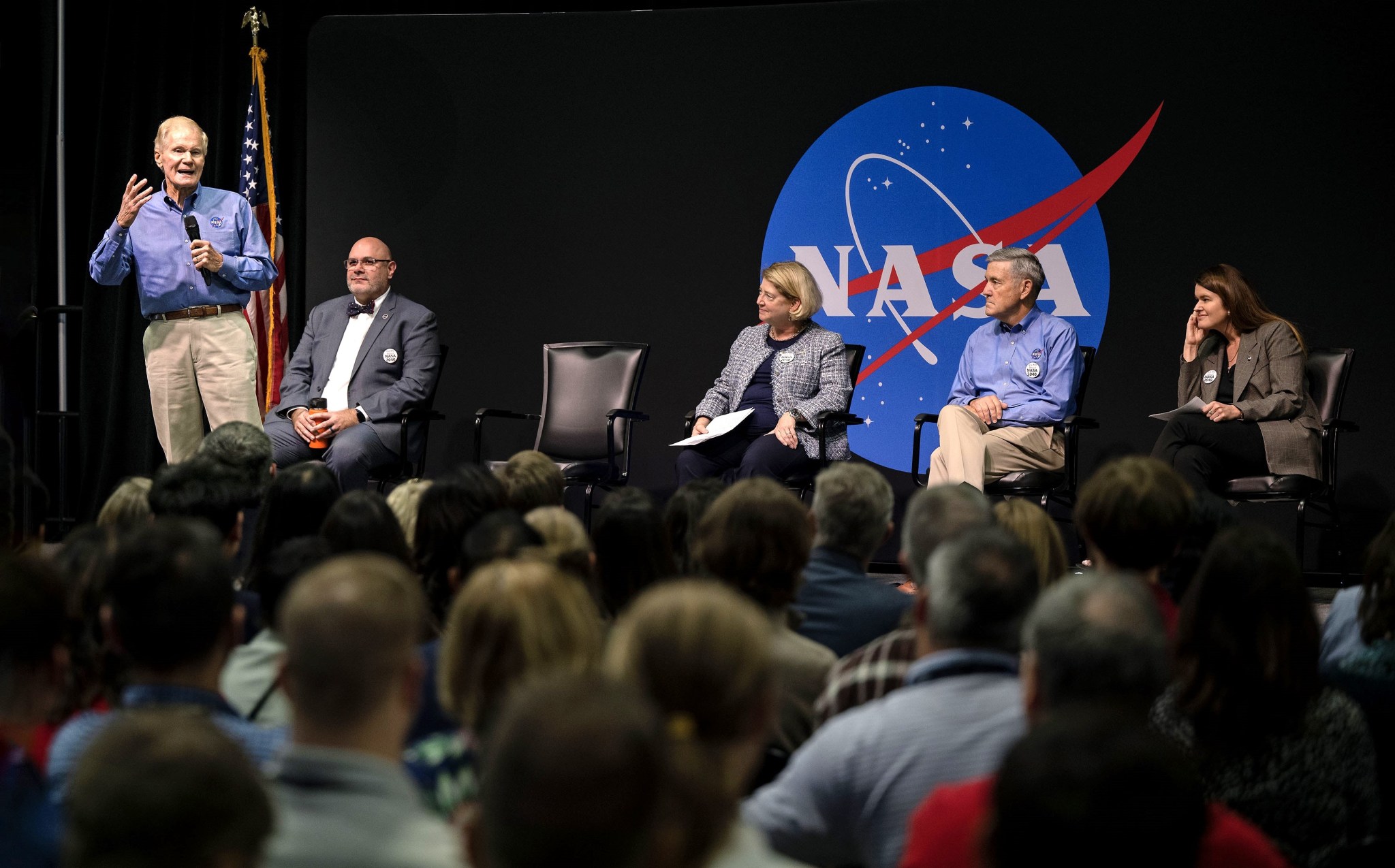
Pelfrey kicked off the town hall by welcoming agency leaders and showering praise on the Marshall team.
“It’s exciting to see the accomplishments of what we’re doing as an agency and see so many parts of that have a Marshall fingerprint,” Pelfrey said. “It’s an honor to have our leadership team here to share some of the things going on within our agency and how Marshall fits into those plans.”
Nelson followed Pelfrey’s speech with another round of praise, calling Marshall team members “wizards who make the impossible possible.”
“We’re going back to the Moon to learn, to live, to create, to invent, in order for us to go to Mars and beyond, to discover those far, distant cosmic shores,” Nelson said. “And Marshall is very much a part of this.”
That work is being supported in part by NASA 2040, a strategic agency initiative aimed at driving meaningful changes that will allow the agency to realize its long-term vision for what leaders want the agency to be in 2040.
“Personally, I think it’s NASA’s role to do really hard things that only NASA can do,” Swails said. “When we talk about 2040 and we talk about our mission strategy, how we do make sure we have an operating model that best sets us up for a future that aligns to mission goals? How do we make sure we have an institution that frankly reflects how amazing and incredible our mission is?”
Swails then presented the plan to achieving those goals which included a seven-part list of workstreams with associated teams and leaders focused on supporting the workforce, infrastructure, and technologies critical to keeping NASA a leader in science, aeronautics, and space exploration.
In addition to her speech, Swails held meetings Sept. 22 to further discuss NASA 2040. Cabana stressed the importance of such meetings and listening sessions during his portion of the town hall, encouraging Marshall team members to seize the opportunity to attend and offer feedback.
Agency leaders also shared how Marshall is key to not just the initiative’s success but the success of NASA’s mission.
“It’s important that we articulate and emphasize the science, technology, and impact we have,” Melroy said. “I’m personally excited, as I see the incredible science you work on here with ISS, what new discoveries we’re going to get with Artemis.”
Melroy and Cabana noted Marshall’s work on nuclear propulsion, with Artemis, and with the International Space Station.
“You’re not making a difference for Marshall Space Flight Center, the state of Alabama, or even the United States,” Cabana said. “You’re making a difference for humanity.”
Cabana provided an update on the Artemis program, telling audience members that Artemis II is still on track for its launch next year and work is underway to prepare for Artemis III’s launch in 2025. He encouraged Marshall team members to be active participants and promote an inclusive environment as the agency continues toward 2040.
“What we are doing is too critical not to give it our very best and have that environment,” he said.
Also critical, however, is ensuring NASA has the budget for its goals. Nelson, a former U.S. senator, said he isn’t sure what those currently in Congress will decide, but he remains confident that NASA will be just fine.
He said there’s talk of NASA receiving level funding, which has caused angst among some, but that NASA’s international reach has made it favorable on both sides of the political aisle.
“At the end of the day, it’s going to be all right,” Nelson said. “There will be some bumps along the way on this budget; it is a sign of the times. I wish it were not that way, but I can tell you that NASA brings people together, and NASA unites, not just in domestic politics but around the world as well.”
Barnett, a Media Fusion employee, supports the Marshall Office of Communications





